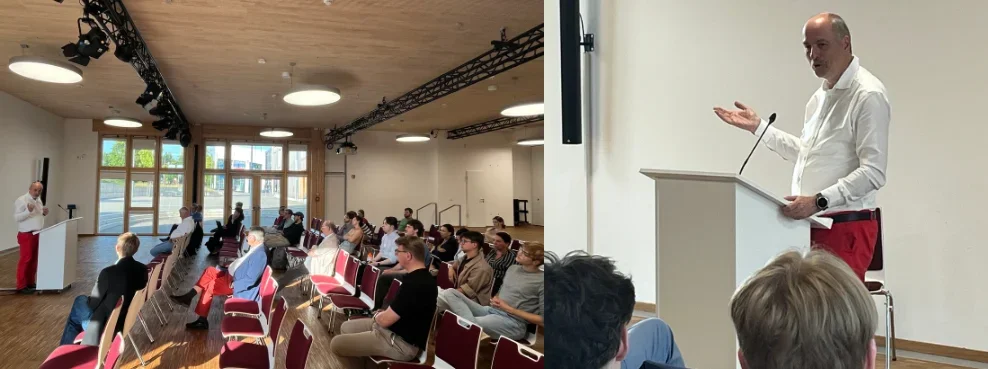Europe in the world of Donald Trump
Review of a stirring lecture by Klaus Welle at Witten/Herdecke University

Under the title "Europe - How to survive in the world of Donald Trump?", UW/H graduate Klaus Welle, former Secretary General of the European Parliament, shed light on Europe's geopolitical situation in the age of a Donald Trump who is once again in power. He presented a penetrating and multi-layered analysis; the event was organised by the International Center for Sustainable and Just Transformation [tra:ce] at Witten/Herdecke University.
Between chaos and meticulous political planning
In his lecture, Klaus Welle outlined an alarming shift in global power relations, characterised by a deliberate weakening of democratic institutions, the fusion of technological, media, financial and political power and a return of geopolitical confrontation. Using ten structural revolutions in US politics, he traced how the Trump system is based not only on chaos, but also on meticulous political planning - orchestrated by think tanks such as the Heritage Foundation.
In addition to Trump as a person, the EU strategist also took a close look at the system behind him: an alliance of tech elites, illiberal international and nationalist forces that are deliberately undermining institutions and weakening traditional centres of power such as the media and universities. The lecture showed how profoundly US policy is shaping international relations - be it through party-politicised foreign policy, the reorganisation of the Middle East or the rejection of multilateral institutions such as the UN.
"Donald Trump's world is a world of the strong."
Welle emphasised: "Donald Trump's world is a world of the strong." Europe had to decide whether to subordinate itself to this logic - or find its own answers. Retreating to normative appeals is no longer enough. What is needed is geopolitical resilience, strategic sovereignty and a new debate on economic and social justice in times of global upheaval.
With regard to Europe's role, Welle argued in favour of a change in realpolitik: Europe must face up to geopolitical reality, expand its own military and economic capacities and strengthen social cohesion at home. The ensuing discussion showed that the audience was agitated, but also inspired. How do we deal with the return of a policy of strength? How do we secure democracy and cohesion in Europe when global forces are deliberately divisive? The answers remain unclear - but the evening made it clear how urgent the debate is.